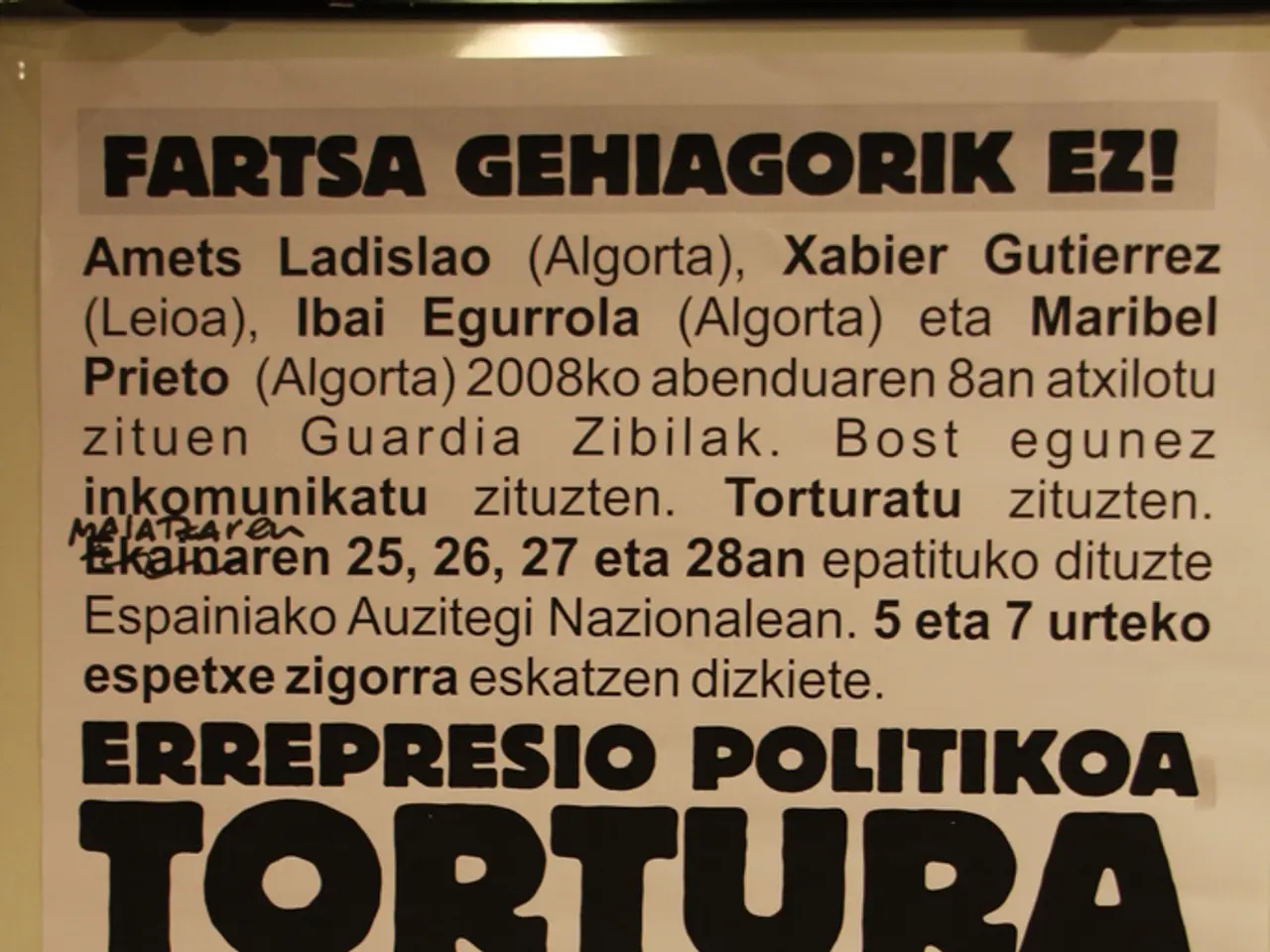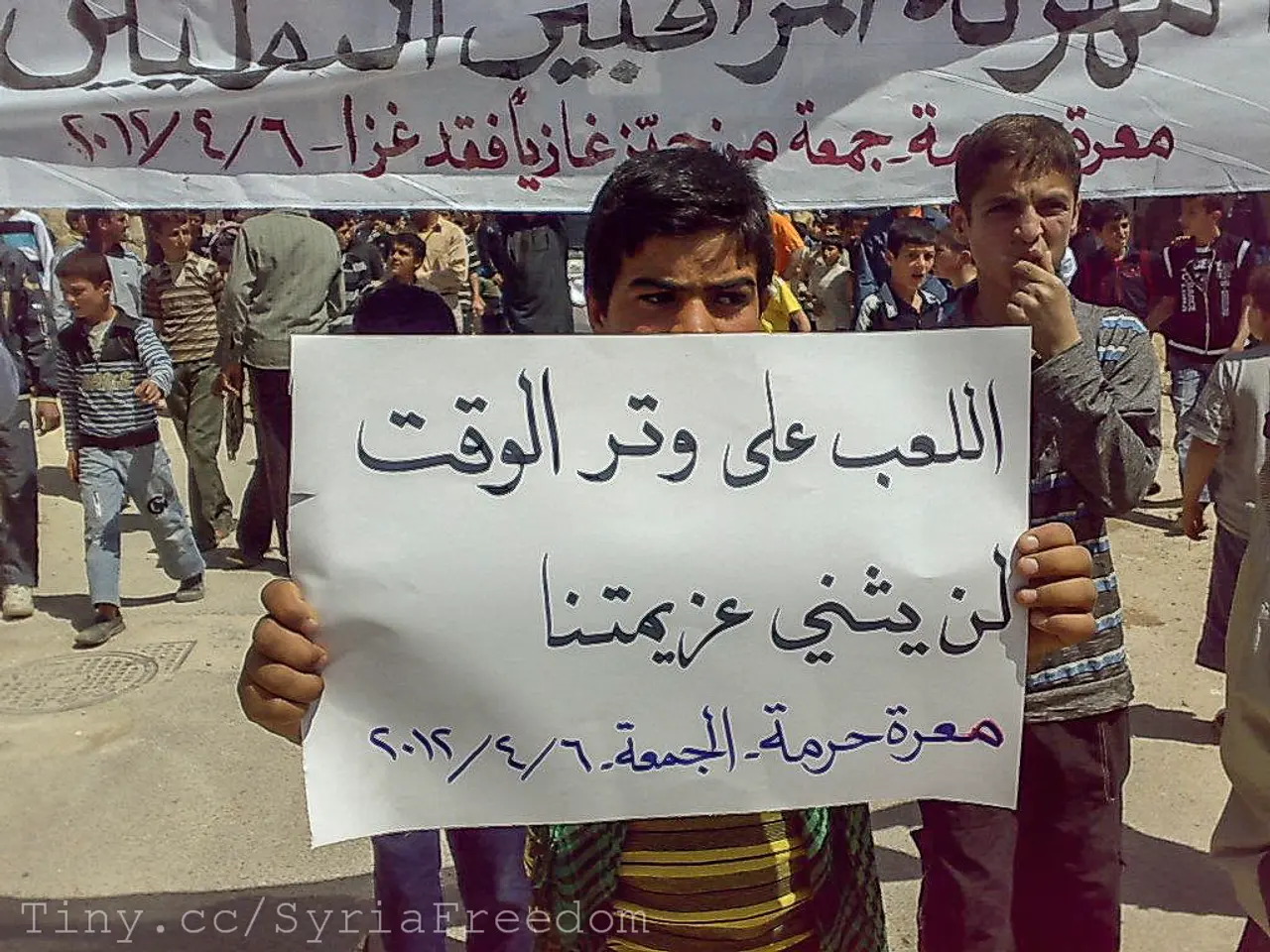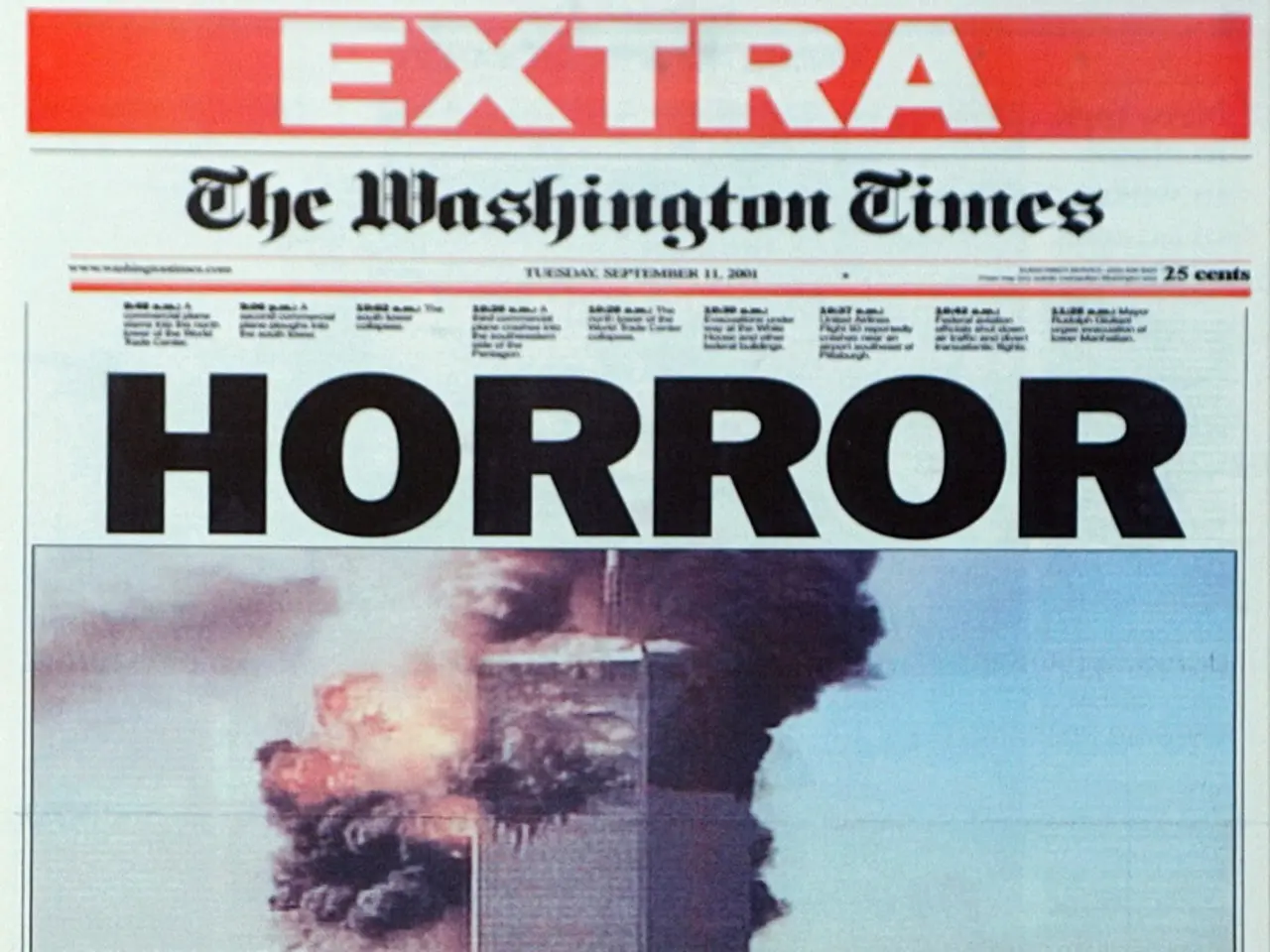Brazilian Government's Potential Threats Towards the United States
The U.S. President has declared a national emergency due to actions by the Government of Brazil that threaten the national security, foreign policy, and economy of the United States [1][2][3]. In response, an executive order has been issued, imposing a 50% tariff on a wide range of Brazilian imports [1][2][3][4].
The new tariffs, effective on goods entered for consumption or withdrawn from warehouse for consumption on or after a specific date, target most Brazilian imports [1][3][4]. However, certain exclusions apply for strategic or previously exempted products, such as energy commodities, silicon metal, pig iron, metallurgical grade aluminum, tin ore, wood pulp, orange pulp and juice, precious metals, fertilizers, civil aircraft parts and components, passenger vehicles, and metal products made from iron and steel [2][4].
Industries affected mainly include metals and mining, agricultural and pulp and paper products, chemicals (fertilizers), and manufacturing sectors related to components for civil aviation.
The rationale behind these actions is to safeguard U.S. interests against Brazil’s government actions that are described as politically motivated persecution of former President Jair Bolsonaro and his supporters, human rights abuses, and actions undermining the rule of law and U.S. corporate and free speech rights [3].
It's important to note that the duty is in addition to any other duties, fees, taxes, exactions, and charges applicable to such imports, unless subject to existing or future actions under section 232 of the Trade Expansion Act of 1962 [4]. The costs for publication of this order are borne by the Department of State.
This order is implemented according to applicable law and subject to the availability of appropriations. The order does not create any rights or benefits enforceable at law or in equity [4].
References:
[1] White House. (2025, July). Executive Order on Addressing the National Emergency with Respect to Brazil. Retrieved from https://www.whitehouse.gov/executive-actions/executive-order-addressing-national-emergency-with-respect-brazil/
[2] Office of the U.S. Trade Representative. (2025, July). Federal Register Notice: Modification of Tariff Treatment for Certain Products of Brazil. Retrieved from https://ustr.gov/sites/default/files/files/Press/Releases/2025/July/2025-23_Federal_Register_Notice.pdf
[3] The New York Times. (2025, July). U.S. Imposes Tariffs on Brazilian Goods in Response to Government Actions. Retrieved from https://www.nytimes.com/2025/07/01/business/us-tariffs-brazil.html
[4] U.S. Customs and Border Protection. (2025, July). Customs Bulletin and Decisions: Modification of Tariff Treatment for Certain Products of Brazil. Retrieved from https://www.cbp.gov/newsroom/bulletins-and-decisions/modification-tariff-treatment-certain-products-brazil
News outlets report on the U.S. imposing tariffs on a wide range of Brazilian imports, with certain exclusions for strategic and previously exempted products such as energy commodities, silicon metal, and orange pulp and juice [3]. Particularly affected industries include metals and mining, agricultural and pulp and paper products, chemicals, and manufacturing sectors related to civil aviation [4]. Politics plays a role, as the action is in response to Brazil's government actions perceived as human rights abuses, politically motivated persecution, and undermining rule of law and U.S. free speech rights [3]. The sports, food, automotive, and general-news sectors are not directly mentioned in the given context.






